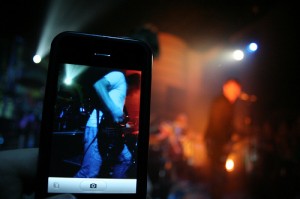Two of PirateBay founders have started a new file sharing service called BayFiles. The name is a fitting reminder of just where these guys came from, but according to details about how the service works, it will not operate like PirateBay—in other words, BayFiles will operate legally. Despite this claim, some still believe they are operating in a gray area plagued with many problems.
As opposed to PirateBay, among other illegal file sharing services, BayFiles intends to run its service much like MegaUpload or RapidShare in that users can upload whatever files they want, obtain a “private” link and be able to share this link with their friends. What makes this different is that at no time will anyone be able to search a database looking for files and then download to their heart’s content.
However, sharing links with friends is a loosely restricted process. Of course BayFiles is reducing a great deal of copyright infringement, but just like with MegaUpload and RapidShare, who’s going to stop someone from posting the “private” link on the Internet?! Once that happens, how long will it take for an influx of copyright infringers to disseminate the content?
It looks like BayFiles has the answer to these questions. They say that they are geared up for the takedown of any infringing content that’s reported to them by copyright holders. The catch is that since users are not able to search endlessly for files they want, copyright holders can’t either. This means that copyright holders would either have to get lucky by stumbling across their illegally shared content out on the Internet or they will have to actively search for it themselves through other search sources like Google.
A beast of this nature would never hold up against U.S. copyright laws, so instead BayFiles is being run out of Hong Kong. Since their terms indicate that they do not tolerate the uploading of copyright-protected content, BayFiles will be able to bypass any copyright laws provided that they follow through with removing the infringing content. This way they can claim that they had no prior knowledge of these files being made available to the public.
The service has both a free and paid options, with paying subscribers being able to upload and download without any limitations on size and speed. The monthly price is €5 which equates to just over $7.
My two cents
As mentioned, this service will be near impossible to monitor for infringing material, but the silver lining could be that if users can’t search for stuff, then maybe your stolen content won’t reach that far into cyberspace. On the other hand, if it spreads like wildfire, then you’re likely to get wind of it just as fast as anyone else.
Either way, there may never be a final solution to stopping digital piracy because there are just too many ways to get stuff these days. So unless all of the countries adopt similar laws regarding copyright policies and then begin to pursue violators, then we’re sure to see more and more avenues leading to stolen materials opening in the future. I’m sure even if BayFiles fails, they’ll be 5 more startups ready to fill the void.
